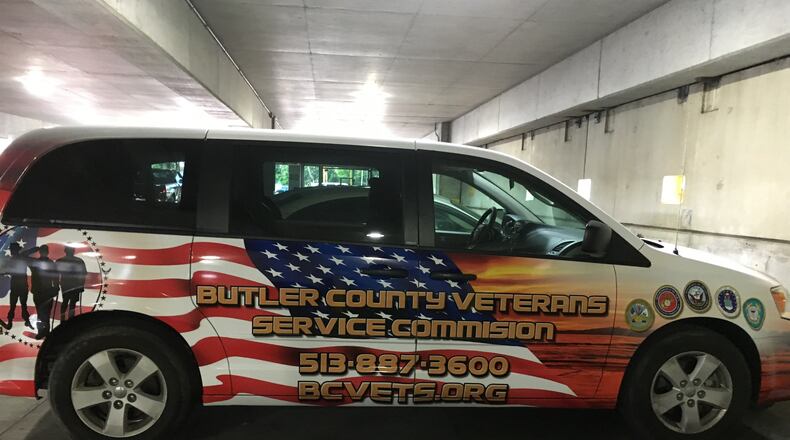“About the only thing we have not done is TV,” Farmer said. “But people still say they don’t know we exist.”
While the board is not affiliated with the Department of Veterans Affairs — it is an arm of county government — it offers services like emergency cash, assistance for veterans navigating the Veterans Affairs system, transportation to medical appointments, and help finding local services for everything from legal issues to marriage counseling.
The board began advertising in 2015 with a $100,000 budget that paid for a marketing study and direct mailers. They have branched out into radio spots and billboards. Board President Bruce Jones said some neighboring counties include the BCVSC at the end of their ads to direct veterans to their home county service office. He said they could do that too and save a little money.
“We’re using just about every type of communication there is out there now, Mike’s got us on every social media site there is I think,” Jones said. “It’s all helping with the younger vets, but some of us feel we’re missing out by not using television.”
There are roughly 25,000 veterans in the county. The standard for measuring success has always been the monthly tally of how many veterans were served in the office, but COVID-19 changed all that. In 2019 they had 1,900 walk-in clients for the first quarter, this year there have been 1,303. Since the world was forced to learn how to work remotely more service officer business has been conducted over the phone and via email. There were 4,008 emails sent, 2,321 forms filled out and 1,010 phone calls completed so far this year.
Farmer also penciled in a 14.8% increase for employee salaries or $674,837. The county commissioners for several years have operated with a two-part performance pay formula that calls for pay hikes in the 1% to 3% range added to an employee’s base pay which they refer to as part A and another 1% to 3% percent available in lump sum payments they call part B.
Traditionally the commissioners set a 2% pool of money from a given department’s total payroll for eligible, non-union employees for the base increases and an equal amount for the lump sum incentive bonuses. This year they increased the pools of money to 3%. The tax budget guidance memo asks other office holders and boards to budget a 3% hike for Part A.
Farmer budgeted a 5.9% cost of living increase and 5% for merit raises. He told the Journal-News they follow the recommendation they received when they did a wage study several years ago. Jones said the board concurs with the practice.
“We’ve got good people, we want to keep them here,” Jones said.
The county commissioners are not permitted to override vet board budgeting decisions — and they haven’t tried — because it is an independent board and the state legislature carved a percentage out of county general funds to help veterans. This year the vet board’s share is $4.5 million.
Although the board is trying to reach more veterans to offer their services, Farmer left a couple of the benefits at current levels, namely: $700,000 each for transportation and financial assistance and $230,000 for food assistance.
“We routinely give back out of the money that’s allocated for transportation,” Farmer said. “So when we budgeted for example last year we also budgeted $700,000, but we gave back a significant portion so I don’t think it would be fair to increase that, because we haven’t used that allocation or seen by our projections that we’re going to tip that scale.”
Last year the board turned back a total of $587,796 to the county general fund they did not spend.
Paying for dental work was a new benefit this year and the board added it because only 1 of every 17 veterans receive dental care through their VA benefits. Farmer upped the allocation for dental visits 25% to $125,000. Jones said the program has been highly successful.
“We’ve had a pretty good response to that...,” Jones said. “I think we’ve had 30 maybe 40 since February coming in.”
Farmer said they don’t have any plans to institute any new programs next year, but hope to schedule a veterans appreciation event with food, music and other entertainment, “just a big, long celebration of veterans in Butler County.”
About the Author

